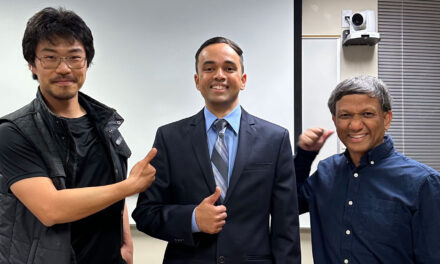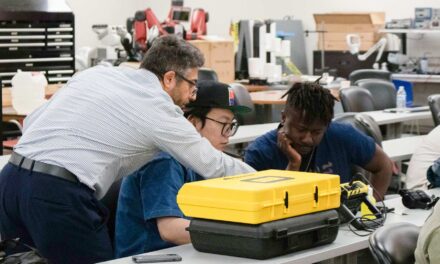
ASU launches online executive master’s degree
January 29, 2004
Arizona State University is launching an online engineering masters degree to address the need for embedded systems knowledge in the engineering workplace. Embedded systems are hardware and software which form a component of a larger system, and they are inside almost everything from cell phones to automobiles.
Engineering companies are among the world’s leading employers, and managing embedded systems development projects is mission-critical work for thousands of those companies. But virtually all engineering graduates join the workforce with minimal training, if any, in embedded systems. Even those who acquire embedded systems knowledge on the job lack the broad set of complementary skills in marketing, management and finance necessary to deliver the right product to market on time and on budget.
ASU is addressing this need with an innovative online master’s of science in engineering in embedded systems program for executives. The curriculum has been carefully structured and sequenced to combine engineering concepts, methods and applications. The Fulton School of Engineering has collaborated with ASU’s W.P. Carey School of Business to deliver a professional certificate in the business core necessary for student success.
The executive master’s program is offered over the Internet, so students can complete course requirements on their own schedule from locations all over the world. Each technical course runs ten weeks, and each business course runs five weeks. Both types of courses integrate subject knowledge with practical application: technical courses have hands-on projects, and business courses incorporate case studies.
“This program is unlike any other in the world,” says Yann-Hang Lee, professor in the Department of Computer Science and Engineering at ASU. Lee is an expert in real-time embedded systems whose work is funded by NASA, the Federal Aviation Administration (FAA), the Defense Advanced Research Projects Agency (DARPA) and the National Science Foundation (NSF). He also collaborates with engineers at Honeywell International, United Technology Research Center and Motorola Labs on practical applications of real-time embedded systems.
“The success or failure of an embedded systems project is often determined by the technical and business skills of the engineering manager and leader of the project,” Lee continued. “When we designed this curriculum, we brought together experts in a number of disciplines. The courses, sequence and selection of materials are designed to produce highly effective engineering managers and technical leaders. And the online, executive format makes it possible for an engineer to acquire a state-of-the-art education quickly and without impacting his or her work schedule or other commitments.”
The program was designed in collaboration with industry through the Consortium for Embedded and Inter-Networking Technologies (CEINT). Member partners include Arizona State University , Intel and Motorola.
The first classes begin in March. For additional information, visit http://www.asuengineeringonline.com .


































